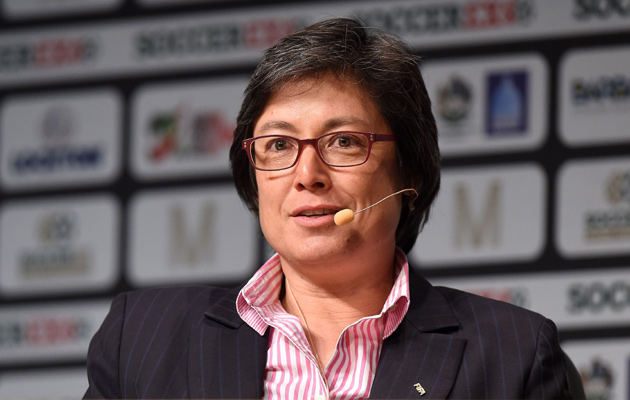Moya Dodd has insisted that reform is even more important an issue for FIFA than the forthcoming presidential election.
Dodd is a member of the world federation’s executive committee who meet in emergency session in Zurich on Tuesday under the interim leadership of Issa Hayatou to review events of the last fortnight and plot a path through the inevitable storms ahead.
Long-serving president Sepp Blatter and UEFA leader Michel Platini, a FIFA vice-president, were suspended from all football activity for 90 days two weeks ago by the independent ethics committee pending an investigation into mismanagement allegations.
Tuesday’s agenda includes an update on the work of a resurrected reform committee being led by veteran Swiss lawyer Francois Carrard. The next exco meeting, on December 2 and 3 in Zurich, must decide which reform proposals to recommend to the emergency congress next February 26 which will also pick a presidential successor to Blatter.
Suggestions that the emergency congress should be delayed appear to have fallen largely by the wayside so urgent is the need to progress with reform.
Dodd, questioned about a roadmap on BBC Radio Five by David Davies, said: “[The FIFA brand] has certainly been damaged. Now the most important priority is reform. It’s more important than the elections that people seem most keen to talk about.
“There is no choice but to reform; the scale of what we’ve seen emerge and are facing is unprecedented. Reform needs to go ahead urgently and it’s important to establish a new and settled leadership and important that it is done as soon as possible.”
The Australian, a co-opted woman’s representative on the exco, expanded on the initial reforms being discussed. These included her own noted concern about gender balance in senior management.
She said: “There are a lot of good reform ideas out on the table including proposals around enhanced integrity checks, term limits, the way the elections are conducted, how to improve standards of governance thoughout the football pyramid including down through the confederations and member associations.
“There are ideas about having independent directors in the executive committee who are not representative of any particular stakeholder group and another set of ideas close to my heart about improving the gender balance of football.”
Dodd, former Australian international, explained: “We’re still an overwhelmingly male world in football. If you look at congress there are less than one per cent women who vote.
“Organisations with better gender balance make better decisions and studies show less corruption when you have better gender balance in the management team. So that’s an area where governance could be improved with better gender balance.”
Dodd also defended the need, questioned in some quarters after scandals of the last decade, for an international governing body.
She said: “It’s very important for football to have a strong centre global body. Football needs a FIFA and it’s important for FIFA to be resilient and exercise its functions capably and well in all parts of the world.
“Look at the impact of solidarity among the football nations and see what thas done: African football has progressed remarkably in the last couple of decades; in Oceania, in beach football, you have Tahiti competing with the world’s best; in women’s football you’ve got Asia and North America who have been to the last two Women’s World Cup finals and the last Olympic final.
“These things are a result of the positive development work which gets done around the world and that can only occur because there is a FIFA that holds a World Cup and generates enough money to spend half a million dollars a day on development.
“It’s absolutely what the function of a well-run global body is. That’s what FIFA should be doing. Football needs a strong central body.”






